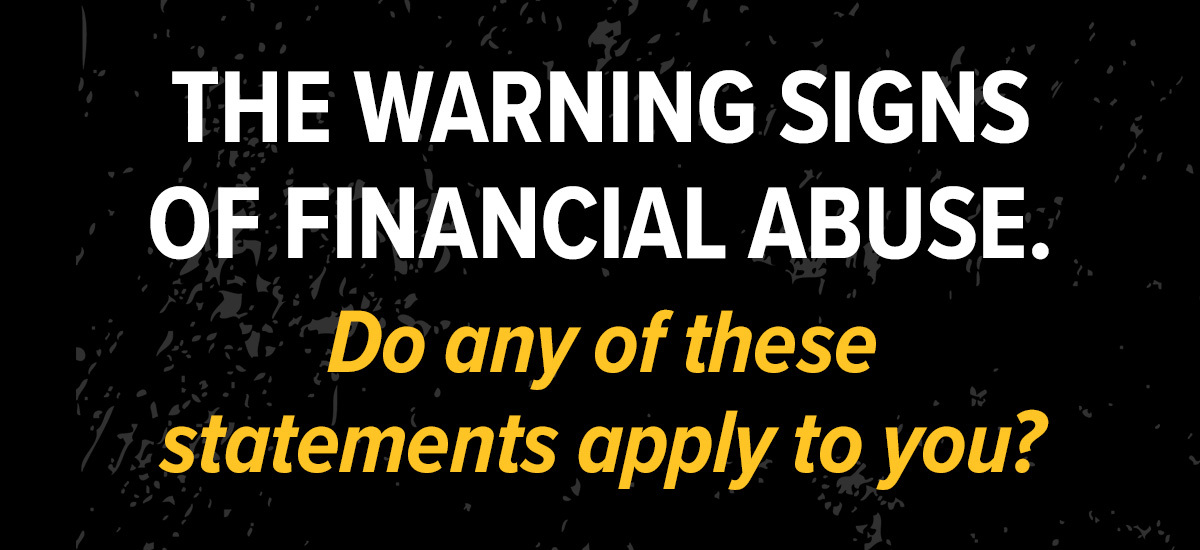For many people, money is one of the most private areas in their lives.
You don’t necessarily talk about it openly with family and friends, and you’re not entirely sure how finances are handled by your peers. We’re not socialised to discuss salaries or our current bank balance, and few of us know how the couples around us deal with household finances. Do they have shared accounts? Shared debt? Do both parties have equal say over how money is spent?
As a result, economic or financial abuse is one of the most insidious, hidden forms of domestic and family abuse.
According to a YouGov 2023 survey commissioned by CommBank, almost one in four people in Australia, have, at some point in their lives, experienced financial abuse by a partner.
In fact, according to Moo Baulch, CommBank Next Chapter Advisor, financial abuse occurs in the vast majority of abusive relationships. In fact, research suggests that among those who seek support for domestic and family violence in Australia, up to 90 per cent are also affected by financial abuse.
It’s a tactic of control that occurs across every demographic. As it can take many different forms, it is one of the most powerful ways to keep someone trapped in an abusive relationship, and may also impact on that person’s ability to stay safe once the relationship is over.
Baulch tells Mamamia financial abuse is far more broad and complex than simply having a partner take the money from your pay packet.
"It’s also things like stopping [a person] accessing Centrelink benefits or childcare benefits, or refusing access to a bank account or a credit card," she said.
"It might be coercing them to do those sorts of things against their will. And then we see this really awful, insidious stuff where that power and control is so focused that it’s… 'I want to see all your receipts for this week, I want you to keep a diary of what you’re spending money on, and you need to justify every single expense to me.' It might be stopping somebody from being able to pay bills, access to resources from the outside, like a car or money for petrol."
Victim-survivors of financial abuse, however, routinely say they didn’t know what was happening at the time. To people inside and outside the relationship, it can be invisible. Often, it starts under the guise of caring, and it’s only when a victim-survivor has left a partner, that they’re able to recognise their experience as abusive.
So we've created a quiz with a number of potential warning signs. In this quiz, we refer to a partner, but it is important to note that abuse can also be carried out by a family member or carer. Financial abuse is one of the most powerful ways to keep someone trapped in an abusive relationship, and may also impact on that person's ability to stay safe once the relationship is over.
Consider each question individually, and we'll answer yes or no. At the end, we'll tell you whether your relationship looks like it may show some warning signs of financial abuse.
Some signs of financial abuse have been detailed in the quiz above, but financial abuse can occur in many ways.
Other possible signs of financial abuse may include:
- I have to seek permission from my partner to spend money, even on the small things like a coffee
- My current or former partner refuses to provide enough money to support the costs of raising children
- My partner has forged my signature on a financial document, or accrued substantial debt in shared accounts without me knowing
- My partner has used my credit card, withdrawn or transferred money from my account without my knowledge or consent
- My partner pays me an allowance that isn’t enough to cover my daily living expenses or denies access to money for essentials – like food and medicine
- My partner has sold shared assets (eg. property) without my consent
- My partner broadly controls how the household income is spent, without any mutual agreement
- My partner has forced me to claim social security benefits, like Centrelink, or has made it difficult for me to go to work or study
- My partner has forced me to work in a family business without being paid
- My partner has destroyed my property
- My partner refuses to contribute to our household income

